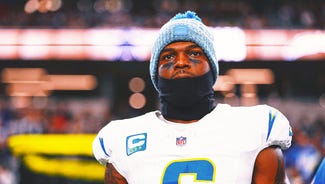
Super Bowl shows defense still matters
A season in which the NFL averaged the most points per contest since the 1970 merger reinforced the notion that this has become a league increasingly skewed toward offense.
But the fact that defense still counts -- as demonstrated by the reality that Super Bowl XLV teams Pittsburgh and Green Bay ranked No. 2 and No. 5, respectively, in total defense during the regular season, and were 1-2 in fewest points allowed -- seems to have been ironically validated by the dramatic turnover in defensive coordinator positions the past several weeks.
And by the patience demonstrated by several head coaches in filling the coordinator vacancies with new hires.
Four franchises -- Arizona, Oakland, Philadelphia, and Tennessee -- still had openings at defensive coordinator as of this writing. That could soon be reduced, since there were several interviews being conducted on Wednesday, and since the annual Coaching Job Market, aka Senior Bowl week, is in full swing.
But the four vacancies in the final week of January, especially since three are with franchises that retained their head coaches, are a lot. And the fact there will be 13 new defensive coordinators for 2011, assuming there are no further switches, is even more significant. Add to that the weekend revelation that the contract for man who is arguably the best-known coordinator in the game, Dick LeBeau of Pittsburgh, expires at the end of the season, and it is definitely an offseason of upheaval at the critical position.
No one expects LeBeau to go anywhere, unless a third Super Bowl title prompts him to retire, but the notion alone that the Steelers could be without their beloved leader next season reflects just how tenuous the defensive coordinator spot has become. The man charged with countering the offensive attacks of opponents are themselves under attack.
"There aren't a lot of guys gaining tenure," said one deposed coordinator this week. "It's smart to keep your resume (updated), I guess."
LeBeau is the only current defensive coordinator who has held that title with the same team for more than three seasons. The shelf life for defensive coordinators has grown increasingly brief in recent seasons, and seems to have come to a head in the most recent firing-and-hiring cycle. If defense has been somewhat subjugated in a league where teams averaged an all-time high 44.07 combined points per game in 2010, the defensive coordinators are coming under more scrutiny.
The Philadelphia Eagles, for instance, ranked 12th in total yards surrendered in 2010, but that didn't stop coach Andy Reid from jettisoning coordinator Sean McDermott, who landed on his feet in Carolina. Counting the Eagles, five clubs that will have the same head coaches in 2011 will have new defensive coordinators.
Texas, Tennessee and Arizona all fired their coordinators. Baltimore replaced Greg Mattison, who departed the Ravens to go to the University of Michigan. The other changes were either because of new head coaches or because the former defensive coordinator (Leslie Frazier, Ron Rivera) became a head coach.
Still, it is a remarkable degree of turnover at an important spot.
And the importance of landing the right person for the position, or a candidate who shares philosophies with the head coach, is magnified by the deliberation that some teams are demonstrating in choosing replacements. Clearly, there are some teams who are waiting for candidates on the Pittsburgh or Green Bay staffs, since those men cannot interview until after the Super Bowl. There are, however, a few clubs just trying to get the right fit.
And hoping that another season of such remarkable and tumultuous turnover doesn't occur again soon.










